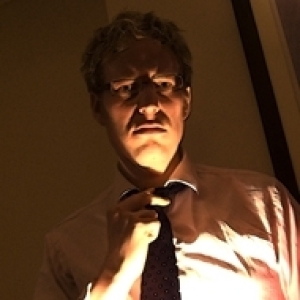Rise up and be a Nation again...
In the 1820s and 1830s (and beyond) the Greeks reclaimed their independence from the Turks (with a little help from the UK, France and Russia) after more than 400 years of subjugation. For a country of such history and influence there was clearly a pride and passion that manifested in the fight. Areas of the Mani, for reasons of geographical isolation as well as being hard as nails, were the last to fall into line under their Eastern rules, and the revolution is traced back to the area as well. In fact traced back to the very little corner we're staying in now.
Obviously the situation with Scotland and England was more political and financial (for the few), rather than military (though there was the threat of that), so a violent revolt wasn't really on the cards (nor, frankly, desirable). The fact all we had to do, unlike most countries that have sought independence, was stick a cross in a box, and that chance wasn't taken was a blow to the morning (the only time on the trip I'd broken my media blackout) but not unexpected. Even less unexpected was the immediate backtracking on promised additional devolutionary powers in the event of a No vote, and a timetable involving a description of the new powers, said by Milliband to be announced on the 19th, is already missed.Ihope it's a decision we don't come to regret (though I won't have a go at anyone for their firm belief that voting No was the right decision, I merely reserve the right at a future date to say 'I told you so').
* * *
So where were we? Ah yes, the backdoor to Hell. No, really, a long drive south sees the road end at a small harbour with a cave said to be a rear entrance to Hades (a bit like Bonnie Prince Charlie caves on Skye, there are a number claimed to be), the very cave that Herakles used to go and get Cerberus onto a lead (or two) and drag him to the surface. The cave is shallow, to the point of merely being an overhang. I wonder if we have the right cave (Fermor's book has him visiting the area and swimming into the cave, whereas this is most definitely on land, and accords with the instructions we have to find it). Anyway, this is merely a precursor to a much more interesting site.
We're here to take a short walk out to the southernmost tip of mainland Greece, Cape Matapan (or Taineron, or Tanaerus, depending on your book), and near the start the exposed, red-earth walk passes the remains of a large city that once stood here. You can see the foundations that are thought, in some instances, to be around 2,200 years old. You can make out walls and steps cut into the rock, and the site just keeps on going up and outwards all the way. It appears to spring from a temple to Poseidon, and remarkably some of the mosaic floor decoration, shorn of the building around it and open to the elements (and more importantly, man) has survived almost intact.
The people clustered here are thought to have been seeking 'asylum'. People who, for whatever reason, the State wanted rid of for being 'undesirable'. But at this location they were safe and the city prospered.
The walk itself, like the cave, possibly didn't warrant the 2 hour drive south, but the lighthouse at the end is pretty (though defunct, shipping taking a wider berth of the Cape than it used to, when shipwrecks were common, or where small enough, the Corinth Canal) and the azure blue seas are gorgeously inviting.
Driving back we park up, and I hop out, at Vathia. This hilltop town, clustered around a small peak, is a prime example of a place overtaken by the towers mentioned yesterday (and Patrick Leigh Fermor actually stayed a night here in his book). They stick up like porcupine spines, now in disrepair and surrounded by modern attempts at recreation (all the way driving south then back north we see 'Stone Houses' being erected, pristine and slightly incongruous). I find a path in that I'm not sure I should be allowed to wander up, but throw caution to the wind and find myself in some not inconsiderably spooky ruins. Here and there it looks like a modern door has been attached, and someone might live there, then you circle and see one wall is missing; in other places open doorways reveal modern plastic chairs that look as if they have just been vacated a moment before; and around one corner a scooter, not reddened by rust, with a pet basket (empty) strapped to the back. I scramble up the rubble as high as I dare, but collapsed floors behind collapsed walls steer me away form climbing any of the towers themselves. It's a place that feels heavy, despite the lightness of location, and despite an overwhelming desire to explore more I arrive back at the car relieved, and feeling like a hundred unseen eyes are no longer on my back.
* * *
On the 'thank you' lessons, we appear to have moved to another pronunciation, as I'm informed it is 'efcaristo', with a hard 'c'. I'm wondering if this is now a game of 'mess about with the tourist', but the more I listen, the more I hear this version, with the 'ef' almost lost at the beginning.

Comments
Sign in or get an account to comment.


